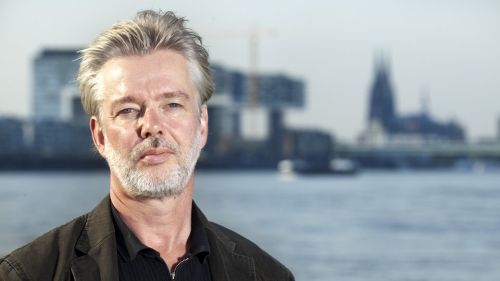 Germany Berlin Musikfest 2014 – Wolfgang Rihm, Franz Schubert: Trio Jean Paul, WDR Sinfonieorchester Köln Jukka–Pekka Saraste (conductor), Philharmonie, Berlin 17.9.14 (MC)
Germany Berlin Musikfest 2014 – Wolfgang Rihm, Franz Schubert: Trio Jean Paul, WDR Sinfonieorchester Köln Jukka–Pekka Saraste (conductor), Philharmonie, Berlin 17.9.14 (MC)

[(c) Kai Bienert
Wolfgang Rihm: ‘Transitus’ for orchestra (2012/13)
Wolfgang Rihm: Trio Concerto for violin, cello, piano and orchestra (2014)
Franz Schubert: Symphony No. 9 in C major, D944 ‘The Great’ (1825/26)
At the Berlin Musikfest provincial orchestras such as the WDR Sinfonieorchester Köln find it extremely hard to compete for audiences against elite orchestras from Berlin and those on tour from Europe and the USA. Although the Philharmonie was relatively poorly attended this didn’t seem to affect Jukka-Pekka Saraste’s players in the slightest, such was their enthusiasm and professionalism.
One sensed that the Köln players had great faith in the music performing two works from Wolfgang Rihm, probably Germany’s greatest living composer and the recipient of a number of prestigious commissions, together with a symphony from Schubert, a composer whose star has continued to shine brightly over centuries.
The opening work of the evening Rihm’s Transitus for orchestra, written as recently as 2012/13, lasted around eighteen minutes. With Transitus , Rihm’s focus was to commit energy into motion by composing a work where music grows from within itself. A work which is typically about mood rather than melody, it opened with a scurrying quality providing an unerring sense of mystery. Throughout the work I noticed the recurring anxiety-laden contrasts between the shadowy air of relative calm that increased into episodes of angry storm clouds of weighty volume. A flute accompanied by a faint solo violin brought the work quietly to its conclusion.
Next came Rihm’s Trio Concerto for violin, cello, piano and orchestra, which was being given its world première. Written this year, the work takes around twenty-five minutes to perform. Here Rihm brings together the full symphony orchestra with players of the Trio Jean Paul (violin, cello and piano) positioned just in front of the conductor’s podium. The trio of instruments are not just pitted against the orchestra but frequently countered against each other. Characteristically loud, stormy often frenzied passages are commonly juxtaposed with writing of a calmer more lyrical quality. Almost all of the trio play virtually from beginning to end but the violinist took centre stage with a substantial amount of passionately lyrical playing. As the music slowed and softened in tone, the strings played a sinister passage that intensified in volume and then quietened before the work ended abruptly. U nder the promptings of principal conductor Jukka – Pekka Saraste it was clear that the players of the WDR Sinfonieorchester Köln had been well prepared, and with new music holding few fears for the orchestra it was hard to imagine Rihm’s music receiving greater advocacy. Rihm who was in the audience clearly relished the standard of the performances.
With the audience suitably refreshed after the interval Schubert’s Symphony No . 9 in C major, D . 944 commonly known as ‘The Great’ was a far easier listening experience than the considerable challenges provided by Rihm’s music. Right from the exceptional playing of the two horns that opened the score and the beautiful string playing heard early in the buoyant opening movement it was clear that the audience was in for a delightful performance. The dynamic range was impeccably rendered by Maestro Saraste avoiding any temptation for extreme volume. A highlight was the cheerful march in the second movement with plenty of punch and bite given where necessary and the principal oboe played immaculately. I was struck by the well-judged tempi in the spirited Scherzo with Maestro Saraste asserting his recognisable calm control. Fresh and joyous in character the Finale was infused with abundant reserves of power and energy together with buoyant rhythms.
This was a polished performance with impeccable unity played by the Köln orchestra radiating significant romantic passion and the Berlin audience displayed its appreciation enthusiastically. Have I ever heard a finer live performance of the Schubert Symphony No. 9 ? I doubt it. I’m unsure if this Philharmonie performance was recorded, but if not a visit to the recording studio is essential.
Michael Cookson
`
